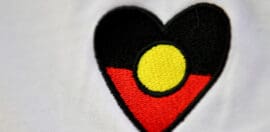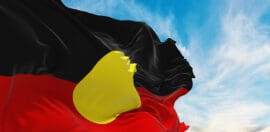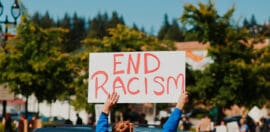Indigenous leaders call for urgent healing for Stolen Generations

3 June 2021 at 8:06 am
Stolen Generations survivors and their descendants carry higher levels of disadvantage when compared to other Aboriginal and Torres Strait Islander peoples, new research shows.
There are nearly double the number of Stolen Generations survivors than first estimated, new research reveals, with Indigenous advocacy groups calling for immediate action to support the health and wellbeing of the survivors and their descendents.
Research from the Australian Institute of Health and Welfare found that the number of Stolen Generations survivors has increased from 17,150 in 2014-15 to 33,600 in 2018-19.
The AIHW research was released in conjunction with a new report from the Healing Foundation, presenting data and analysis on where and how Stolen Generations survivors and their families live.
This analysis found that Stolen Generations survivors and their descendants carry higher levels of disadvantage across life outcomes when compared to other Aboriginal and Torres Strait Islander peoples.
Those aged 50 and over were 1.8 times more likely to not own a home, were 1.4 times more likely to have a disability, and were 1.4 times more likely to have poor mental health.
When compared to the non-Indigenous population, survivors were three times as likely to be living with a severe disability, 2.7 times as likely to have poor mental health, and 4.6 times as likely to have kidney disease.
Survivors are also growing older. In 2018-19, more than 80 per cent of survivors were aged 50 and over. By 2022, all Stolen Generations survivors will be over the age of 50 and eligible for aged care.
In a speech to the National Press Club on Wednesday, Healing Foundation CEO Fiona Cornforth said that Stolen Generations survivors had “multiple complex and overlapping needs”, which were largely unmet.
“They lack access to appropriate services, including to address their needs as they age, and are less likely to access services that they are entitled to,” Cornforth said.
Descendents are also falling through the gaps
The Healing Foundation research found that there are also over 142,000 descendants of Stolen Generations survivors nationally, who also experience significantly poorer wellbeing when compared to other Aboriginal and Torres Strait Islander peoples.
This included being twice as likely to feel discriminated against in the last year, almost two times as likely to have experienced actual or threatened violence in the last year, and one and a half times as likely to be in poor health.
Cornforth said that this data was proof that intergenerational trauma was real.
“The disruption to community, cultures, and connections to families – and the current extra burden of restoration against all the odds – takes its toll,” she said.
“The evidence is compelling. Removal is the origin of trauma for too many of our peoples. Yet it is simply not considered or accounted for in policy, in funding decisions, or service delivery.”
Healing the gap within the gap
The report calls for a number of recommendations for the federal and state governments to put in place immediately.
These include nationally consistent redress for Stolen Generations survivors, their families, and descendents; trauma-aware and healing-informed services to meet aged care care, mental health, disability and housing needs of survivors; and a National Intergenerational Healing Strategy.
The strategy includes an overarching framework that encompasses truth-telling, healing through culture; self-determination; and community-led services and programs.
Cornforth said that the release of the two reports laid out the evidence and the next steps for action that were “long overdue”.
“There is an urgent need to heal past wrongs – for the wellbeing of those who were stolen, their descendants who have had their cultural authority and legacy compromised, through what happened to their parents and grandparents,” she said.
“Now is the time to make healing happen.”
See a full copy of the Healing Foundation’s report here.








